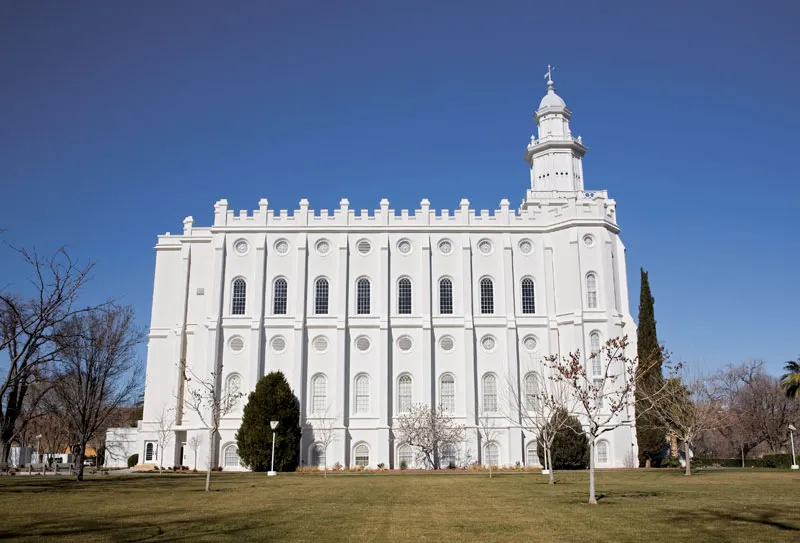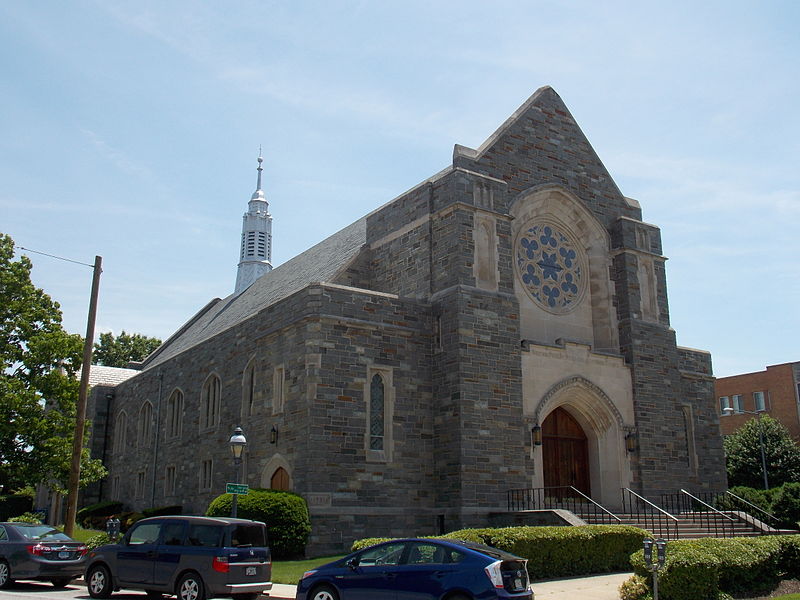5 Churches That Don’t Celebrate Easter And Why


The celebration of Easter stands as one of the most significant events in the Christian calendar, commemorating the resurrection of Jesus Christ.
However, not all Christian denominations partake in Easter festivities. Here are five churches that typically do not celebrate Easter and their reasons:
- Jehovah’s Witnesses
Jehovah’s Witnesses, as a distinct Christian denomination, refrain from celebrating Easter due to their theological beliefs and interpretations of scripture. Central to their faith is a strict adherence to what they perceive as the original teachings of Christianity, as outlined in the Bible. Jehovah’s Witnesses reject the observance of Easter primarily because of their conviction that it has pagan origins and is not sanctioned by scripture.


They argue that many Easter traditions, such as the use of eggs and rabbits, have non-Christian roots, dating back to pre-Christian fertility rites.
Furthermore, Jehovah’s Witnesses emphasize the commemoration of Jesus’ death over his resurrection, which they believe occurred on Nisan 14 according to the Jewish calendar, rather than on Easter Sunday.
They commemorate Jesus’ death annually through a solemn event known as the Memorial of Christ’s Death, which corresponds to the date of the Jewish Passover. During this commemoration, Jehovah’s Witnesses gather to reflect on the significance of Jesus’ sacrifice and its redemptive power for humanity, emphasizing the importance of salvation through Christ’s death.
Another reason Jehovah’s Witnesses abstain from Easter celebrations is their focus on maintaining a separation from what they view as worldly or pagan influences. They believe that true worship should be free from any association with practices or customs that deviate from authentic Christian teachings. As a result, they reject participation in Easter festivities, opting instead for a more simplified and scripturally based approach to their faith.
Moreover, Jehovah’s Witnesses prioritize evangelism and spreading their beliefs to others. They often use the occasion of Easter to engage in outreach efforts, distributing literature and engaging in discussions about their faith. For Jehovah’s Witnesses, every opportunity to share their beliefs with others is considered crucial, and Easter presents an opportunity to discuss their reasons for not celebrating the holiday and to present their interpretation of Christian teachings.
In summary, Jehovah’s Witnesses’ decision not to celebrate Easter stems from their theological convictions, including their interpretation of scripture, their focus on Jesus’ death rather than his resurrection, their desire to maintain doctrinal purity, and their commitment to evangelism. While they abstain from Easter observances, they remain dedicated to their beliefs and to spreading what they perceive as the true message of Christianity.
- The Church of Jesus Christ of Latter-day Saints (Mormons)
The Church of Jesus Christ of Latter-day Saints (Latter-day Saints or Mormons) does not have specific Easter celebrations in the traditional sense. While Mormons acknowledge the resurrection of Jesus Christ as a central tenet of their faith, their approach to religious observance differs from that of many other Christian denominations. Rather than emphasizing Easter as a distinct holiday, Mormons focus on the Atonement of Jesus Christ throughout the year. They believe that Jesus’ sacrifice and resurrection are fundamental to their understanding of salvation and redemption.
Mormons place a strong emphasis on the teachings found in the Book of Mormon, along with the Bible. They view the Atonement as a continuous and ongoing process, with its significance permeating all aspects of their lives.


Thus, while Easter is recognized as an important event in Christian history, Mormons prioritize living according to the principles taught by Jesus Christ rather than celebrating specific holidays.
Moreover, Latter-day Saints typically gather for worship services every Sunday, rather than singling out Easter Sunday for special observance. These weekly gatherings, known as Sacrament Meetings, provide opportunities for Mormons to renew their commitment to their faith, partake of the sacrament (similar to communion), and strengthen their sense of community.
In addition, Mormons may choose to mark Easter with personal and family-centered observances, such as attending special church services or spending time with loved ones.
However, these observances are generally not as elaborate or widespread as those found in other Christian traditions.
Overall, while Mormons acknowledge the significance of Easter and the resurrection of Jesus Christ, their approach to religious observance is characterized by a focus on the Atonement and living according to the teachings of Jesus Christ throughout the year, rather than through specific holiday celebrations.
- Some branches of the Seventh-day Adventist Church
Some branches of the Seventh-day Adventist Church do not observe Easter as a religious holiday due to various theological and historical reasons. One primary concern among certain Seventh-day Adventists is the holiday’s perceived pagan origins and its historical associations with non-Christian rituals and practices. As a denomination that places a strong emphasis on biblical teachings and adherence to the Sabbath, these Seventh-day Adventists prioritize worship on the seventh day of the week, which they believe is Saturday, in accordance with the Fourth Commandment.
Furthermore, Seventh-day Adventists often express reservations about participating in Easter celebrations due to their understanding of biblical prophecy and end-times theology. Some within the denomination interpret certain Easter-related customs, such as the use of eggs and rabbits, as symbolic of fertility rites that are inconsistent with their interpretation of biblical teachings.


Moreover, Seventh-day Adventists tend to focus on the resurrection of Jesus Christ throughout the year rather than confining its commemoration to a single day. They believe in the importance of remembering Jesus’ sacrifice and victory over death as central to their faith and salvation.
However, rather than celebrating Easter as a distinct holiday, they integrate the themes of Jesus’ resurrection and redemption into their regular worship services and teachings.
In addition, Seventh-day Adventists prioritize health and well-being as part of their religious beliefs, which may influence their approach to Easter observance.
Some Seventh-day Adventists choose to abstain from certain Easter-related customs, such as consuming large quantities of sugary treats or processed foods, in line with their dietary principles and commitment to living a healthy lifestyle.
Overall, while some branches of the Seventh-day Adventist Church may not observe Easter as a religious holiday, they maintain a deep reverence for the resurrection of Jesus Christ and integrate its significance into their broader theological framework and worship practices throughout the year.
- The Quakers (Religious Society of Friends)
The Quakers, also known as the Religious Society of Friends, are known for their simplicity and rejection of outward religious ceremonies and rituals, including the observance of Easter. Central to Quaker beliefs is the concept of “silent worship,” where adherents gather in silence to seek direct communion with the Divine without the need for clergy, sacraments, or formal liturgy. This emphasis on the inward spiritual experience over external religious practices leads Quakers to abstain from celebrating Easter and other traditional Christian holidays.


For Quakers, every day is seen as an opportunity for spiritual reflection and renewal, rather than confining significant religious observances to specific dates on the calendar. They believe in the importance of living out their faith through acts of kindness, social justice, and simplicity in daily life, rather than through the observance of holidays such as Easter. This focus on the continuous practice of faith aligns with the Quaker belief that spiritual growth is an ongoing journey rather than a series of isolated events or celebrations.
Furthermore, the rejection of Easter observance reflects Quaker concerns about the historical and cultural origins of the holiday. Quakers place a strong emphasis on discernment and critical reflection, and some may view Easter customs and traditions as having pagan or commercialized roots that detract from the purity of their faith.
As a result, they choose to abstain from participating in Easter celebrations as a means of maintaining spiritual integrity and authenticity within their religious community.
In addition, the Quaker commitment to simplicity and equality extends to their approach to religious observance. Rather than elevating certain holidays or rituals above others, Quakers emphasize the importance of living a consistent and spiritually grounded life year-round.
This egalitarian ethos underscores their decision not to celebrate Easter, as they strive to avoid hierarchical structures and external displays of religious piety in favor of a more egalitarian and inclusive faith practice.
Overall, the Quaker decision not to celebrate Easter reflects their broader commitment to simplicity, inward spirituality, critical discernment, and egalitarian values. By abstaining from Easter observance, Quakers reaffirm their dedication to a faith practice centered on direct communion with the Divine, ethical living, and the pursuit of social justice in everyday life.
- Certain Holiness and Pentecostal denominations
Certain Holiness and Pentecostal denominations, while deeply rooted in Christian beliefs, do not celebrate Easter in the traditional sense. This departure from mainstream Christianity stems from theological interpretations and historical perspectives unique to these denominations. While Easter holds significant importance in the liturgical calendar for many Christians, certain Holiness and Pentecostal churches prioritize other aspects of faith and practice.
One reason these denominations abstain from Easter celebrations lies in their emphasis on spiritual purity and holiness. They often view Easter, along with other mainstream Christian holidays, as being heavily influenced by pagan traditions and rituals. As a result, they choose to distance themselves from these celebrations to maintain their doctrinal integrity and spiritual distinctiveness. Instead, they focus on worship practices and observances that align more closely with their interpretation of biblical teachings.
Moreover, certain Holiness and Pentecostal denominations prioritize daily living according to biblical principles rather than commemorating specific holidays. They believe in living a sanctified life marked by spiritual dedication, personal holiness, and adherence to biblical commandments. For them, every day is an opportunity to honor Christ through righteous living and devotion, rather than through the observance of particular holidays.
Additionally, these denominations often place a strong emphasis on the Holy Spirit’s role in the life of the believer.
They prioritize experiences of spiritual renewal, empowerment, and transformation through the Holy Spirit’s work. As such, their worship services and spiritual practices may center more on the presence and power of the Holy Spirit rather than on traditional liturgical celebrations like Easter.
Overall, while certain Holiness and Pentecostal denominations may not observe Easter in the same manner as other Christian traditions, their decision is rooted in theological convictions and a desire to maintain spiritual purity and distinctiveness. Instead, they prioritize daily living in accordance with biblical principles, emphasize the work of the Holy Spirit, and seek to cultivate a deeper spiritual connection with God apart from traditional holiday observances.


Sodiq Lawal is a passionate and dedicated journalist with a knack for uncovering captivating stories in the bustling metropolis of Osun State and Nigeria at large. He has a versatile reporting style, covering a wide range of topics, from politics , campus, and social issues to arts and culture, seeking impact in all facets of the society.










